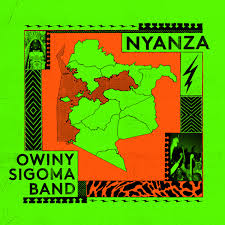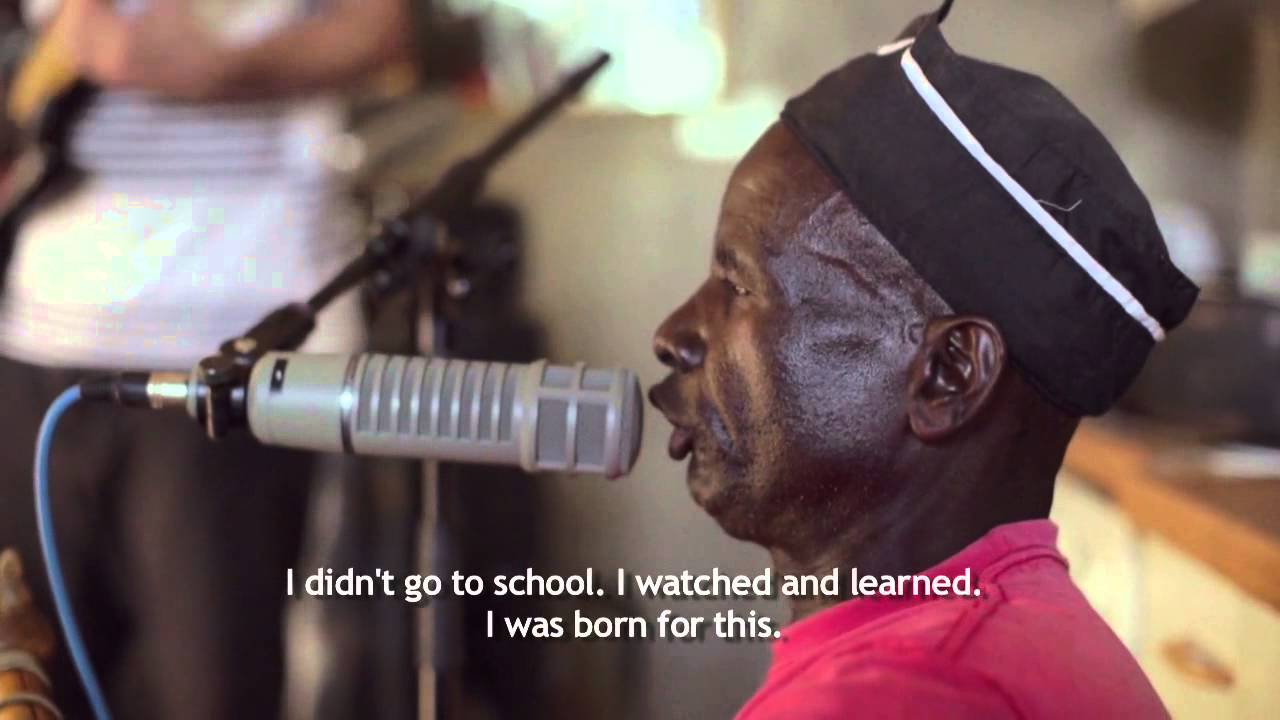This is the album where the Owiny Sigoma Band reach some of that phenomenal potential that simmered just out of reach across their two debuts. The project – that saw musicians from London meet up with Kenyan musicians from the Luo tribe in Nairobi for the self-titled debut, and then flip the concept having Joseph Nyamungu and Charles Owoko come to London to record the band’s second, electronica-tinged album Power Punch – has completed its first logical cycle, leaving only one place left to go both musically and geographically. Somewhere else. The blend of intensely minimal Luo folk with groovy, albeit at times timid, rhythms from the band, along with the breathy strands of techno and synthy pop that became more prominent on Power Punch, threatened to grow old. Nyanza however, sounds like a band liberated from their own expectations, free from the pressure to deliver purely African grooves, and enthralled by the music they’re making. Quite rightly too, as Nyanza is a bloody masterpiece.
Nyanza follows the reassembled Owiny Sigoma Band as they travel deeper into the African continent far from the urban sprawl of Tescos and pound shops they left on Power Punch, and into the Nyanza region in south-western Kenya. Recording seems to almost follow a loose Michael Palin-esque narrative as they leave the capital city on sweltering opening track ‘(Nairobi) Too Hot’ (replete with the sound of machine gun fire no less – Nairobi’s ‘hot’ these days in several different ways), and head into the bush taking in a ‘Fisherman’ Camp’, a ‘Nyanza Night’, and trying some ‘Deep Kisumu Fish’ (Luo people love fish, and Kenya’s third city of Kisumu is a top spot to try some). Recordings took place on the fly as they travelled too, with mics set up in a rented house in Kisumu, or overlooking Lake Naivasha, while the found sounds and aural bleed from their locations pervade much of the album’s bed. It plays like a joyous document of the group’s trip – somewhere between holiday snaps and travelogue – best exemplified by the tropical lullaby centrepiece of ‘Nyanza Night’, where the sounds of field recorded evening rainfall and Joseph Nyamungu’s lethargic nyatiti plucking give way to a sleepy tune sung by Jesse Hackett, supplemented by strings added in post by south London musician Eska. It all amounts to music that’s part psychedelic collage, part folk song, like much of the album. The song in fact tells the story of the night the band went off road to Charles Owoko and Joseph Nyamungu’s village home, partying and jamming through the night with locals and litres of a local brew called ‘Changaa’ (rumoured to contain jet fuel and battery acid). Drummer Tom Skinner recalls it as "one of the most magical nights that I’ve ever had. In the middle of nowhere, in the outback of Kenya, under the stars. I don’t think I’ve ever really felt so far away from my normal life."
The influence of that night appears again in the form of lead single, ‘Changaa Attack’, where Nyamungu toasts and screams joyously over some of the most outright groovy percussion work from Owoko and Skinner, while a group of fisherman’s children – recorded later near Lake Naivasha – jump in to provide the hooky chanting refrain.
The sounds on the album vary more than ever before, growing exponentially on their previous efforts, and throwing up some stunning texture blends. The snap of Korg’s Volca Beats analogue drum machine on ‘Tech 9’ coalesces dreamily with Owoko’s voice, washes of keyboard, and percussive background clutter, while ‘Deep Kisumu Fish’ is conversely built around little more than a Yamaha keyboard preset rhythm. Elsewhere, the results capture explosive new beats from the region, like the slick groove of hand percussion and gentle drumming on ‘(Nairobi) Too Hot’, or the high tempo claps, kicks, hi-hats and cow bells on ‘Luo Land’ seemingly influenced by the Shangaan Electro movement emanating some 2,000 miles south of Nyanza in Limpopo, South Africa. Then there’s the influence of Kenyan radio’s infectious positivity, which kickstarted the creation of ‘I Made You / You Made Me’, a hugely pop tune written for Jesse Hackett’s daughter overflowing with crisscrossing synth lines and Hackett’s own breathy boyish vocals. Even the eight-stringed lyre-like instrument called a nyatiti, appears somewhat shapeshifted, as Nyamungu – who almost seemed to meditate on the same repeated theme for both previous albums – tries out some new rhythmic shapes and patterns throughout Nyanza, like the multi-faceted groove of his nyatiti line on ‘Ojoni Wopio’, or the gentle loner musings of ‘Owour Won Gembe’ which captures Nyamungu’s quietest solo playing and singing in a concrete bunker of a studio, augmented by nothing but a slow atmospheric wash of synth.
In total, Nyanza achieves the incredible goal of producing something that is neither Kenyan nor British. Every track synthesises the disparate musics into something totally new, while both Owiny Sigoma Band and Power Punch (nonetheless brilliantly) tended more towards an assemblage of tropes rather than the musical alchemy on display here. Congolese band Mbonwana Star achieved similarly excellent heights earlier this year on their stunning debut album in collaboration with French-Irish producer, Doctor L, From Kinshasa – but even that album doesn’t have the muscular joy of Nyanza.
With each passing day the Mediterranean seems to embody a fast-growing cavernous divide, and the voices of reason get drowned out by the bellowing fog horns of prejudice and fear. They are the poison, and Nyanza is the cure. Only the sounds of gunfire on ‘(Nairobi) Too Hot’, and the beatless closing track, ‘Amolo Tienga’ simmer somewhat uneasily. The only percussion heard on ‘Amolo Tienga’ is the sparse crashing of cymbals and drum fills, dropping like smatterings of bombs over the wistful sound of Nyamungu’s peaceful nyatiti musings.
<div class="fb-comments" data-href="http://thequietus.com/articles/18698-owiny-sigoma-band-nyanza-review” data-width="550">



